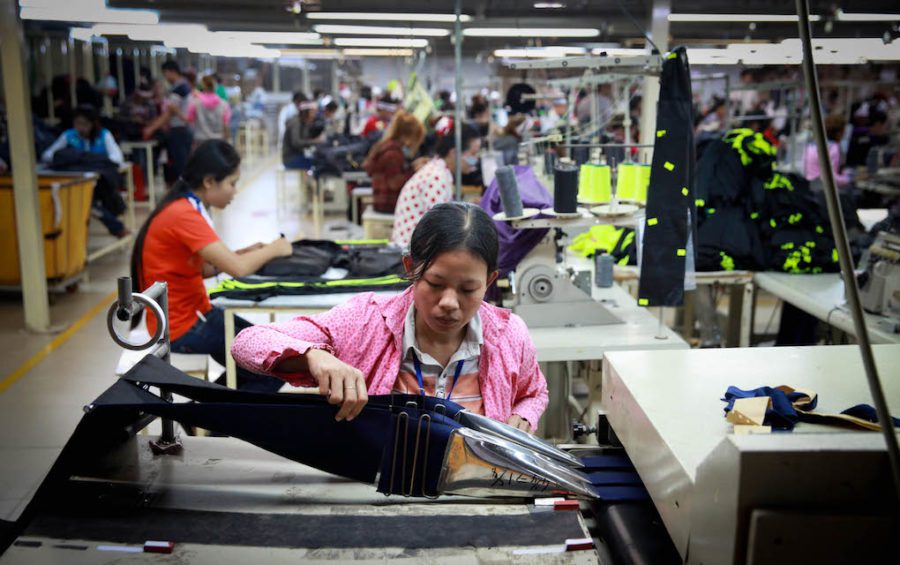The E.U. this week wrapped up the investigatory phase of its review of duty-free trade with Cambodia over rights concerns, with garment factories asserting their progress on labor rights and the setbacks a suspension could cause.
The “Everything But Arms” trade deal remains under threat following what the E.U. has characterized as a shrinking space for politics and civil society in Cambodia over the past two years, including the dissolution of the main opposition party in November 2017 and legal actions against government critics.
It embarked on a six-month fact-finding period in February, and this week continued on to a three-month phase to draft a report of its findings. A final decision is scheduled to be made three months later, with the entire process taking a total of 18 months until duty-free trade is potentially suspended.
The Garment Manufacturers Association in Cambodia said in a statement on Monday that it had cooperated with E.U. investigators in order to demonstrate the country’s progress in improving labor standards.
It had “submitted detailed information … to make clear our sector has established a culture of transparency and accountability in labour compliance and working conditions,” the statement said.
The association stressed the garment sector’s importance to the country — comprising 75 percent of its total exports, 750,000 workers and income to families totaling 3 million people — and noted the potential impact of losing EBA access.
“A suspension of EBA benefits for our sector will result in large job losses across the garment, footwear, and travel goods labour force and would not serve the EBA programme objective of poverty eradication and sustainable development,” the statement said.
The World Bank has estimated a loss of $514-654 million for garments and footwear exports if the EBA is suspended.
The manufacturers association said the E.U. had become Cambodia’s biggest export market thanks to the EBA, overtaking the U.S. — which provides some tariff-free benefits to Cambodia under a Generalized System of Preferences scheme but excludes most types of garments and footwear, accepting instead only some silk-based dresses and other specialized items.
Ath Thorn, president of the Cambodian Labor Confederation, said he was concerned about what decision the E.U. would make considering the government’s defiant stance on the review.
Cambodian officials have repeatedly called the E.U.’s threat to remove duty-free trade an improper interference in the country’s affairs.
“If they really withdraw it, no matter what sector, it will affect job creation and the income of the workers,” Thorn said.
Commerce Ministry spokesman Seang Thay acknowledged the potential impact of losing the EBA. The government was working with the E.U. to try to keep the trade deal intact, but it ultimately could not control the E.U.’s decision, he said.
“The government’s stance is that we would welcome the continuation of it, but whether they decide not to we don’t know,” Thay said. “We have to accept that. Our goods will still be transported the same, but we would just pay taxes.”
Soeng Senkaruna, spokesman for rights group Adhoc, urged the government to reconsider its stance and follow E.U. recommendations to restore space for civil society.
“What the E.U. has requested — like restoring freedoms for civil society, opening a space for democracy, and fostering political reconciliation — I think all of these could be done,” Senkaruna said.
(Translated and edited from the original article on VOD Khmer)













